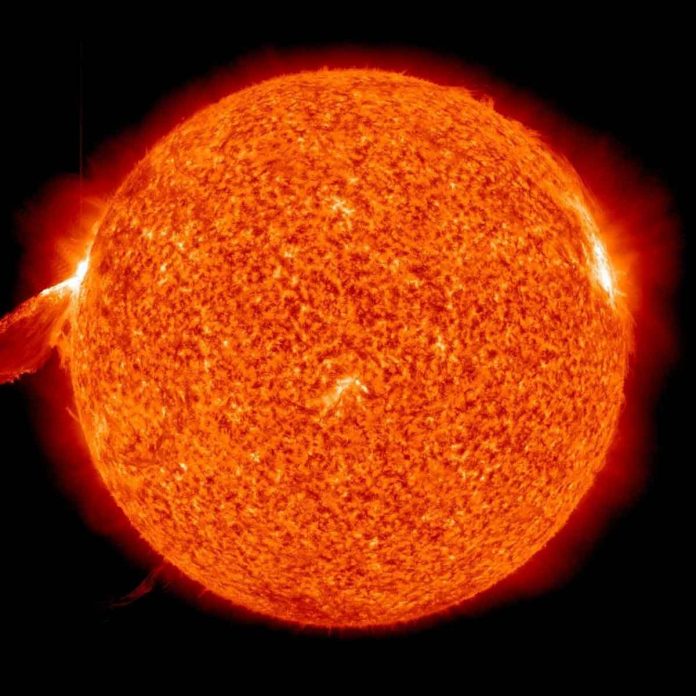Ph.D. candidate Zhang Xiaojuan and Prof. Deng Linhua from Yunnan Observatories of the Chinese Academy of Sciences investigated the temporal variation of the hemispheric distribution of long-term sunspot activity during the time interval from 1939 to 2019. The study was published in Monthly Notices of the Royal Astronomical Society.
Solar sunspots are the most easily visible structures in the photosphere. They are connected to most activity phenomena like filaments, flares and coronal mass ejections.Sunspot relative numbers are the measure of global magnetic activity.
Solar activity is not identical in the two hemispheres, that is, there is always a hemispheric asymmetry. The hemispheric asymmetry is not an artifact of inaccurate or noisy observations. Studies of the temporal evolution of the solar cycles in the two separate hemispheres can give us important information for the dynamo process underlying this evolution.
Scientists investigated the temporal and spatial behaviours of the hemispheric asymmetry of sunspot relative numbers covering eight solar cycles. The solar data used in this study is a new sunspot database which is obtained from the Mitaka observatory of the National Astronomical Observatory of Japan (NAOJ/Mitaka).
Scientists found that the NAOJ/Mitaka sunspot relative numbers were highly correlated with the international sunspot numbers obtained from the World Data Center Sunspot Index and Long-term Solar Observations. It confirmed that the Mitaka sunspot time series could be used for a hemispheric variation study.
There are enhanced powers in the period ranges of quasi-biennial oscillations. The analysis results show us a possible mechanism responsible for the generation and variation of the hemispheric coupling in the sun.

